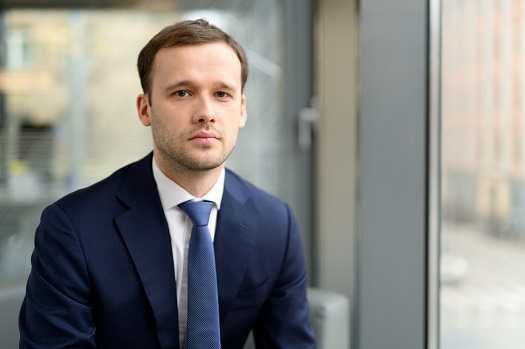Nordea Economic Outlook: Baltics can become expensive before becoming rich
Economic growth is accelerating and becoming more balanced in all three Baltic countries. Owing to a stronger than expected cyclical growth momentum in the Eurozone and limited impact of an ongoing political uncertainties to global economic growth, we have slightly updated GDP forecasts for the Baltics – we expect 3% growth for Lithuania and Latvia and 2.5% for Estonia.
Baltics on their way to economic growth
Economic growth is set to become more balanced. Private consumption, which was driving economic growth during the last 3 years, will decelerate as rising inflation will curb real income growth of households, but exports and investments will pick-up on the back of better external environment and improved investor confidence. Fiscal policy will also support growth as the Baltics already have achieved one of the lowest public debt and deficit levels and the focus increasingly shifts to kick-starting economic growth rather than balancing books. Higher inflow of EU-funds will also contribute to increased government spending and investment.
Yet with global inflationary pressures mounting and domestic labour markets overheating, there is an increasing risk that Baltics may fall into a vicious wage-price spiral with wages chasing rising prices and prices chasing rising wages. This would give a temporary boost to economic growth, but in the longer-term may jeopardize international competitiveness. If productivity growth will not accelerate in line with inflation and wage growth, Baltics may become expensive before becoming rich.
Price level of consumer goods and services in the Baltics is already now higher compared to Visegrád Group countries (Poland, Czech Republic, Hungary and Slovakia), which have similar level of economic development. Baltics have very limited possibilities to compete with these countries in terms of lower costs due to limited economies of scale, further distance from Western Europe and lack of competition in some business areas. In this regard, Poland to the Baltics is just as Germany is to the Nordics: price level in Nordic countries is 20-40% higher than in Germany, while Baltic countries have 20-40% higher prices compared to Poland). Hence, in order to compete with Visegrad Group countries, Baltics must focus on developing higher value-adding economic sectors and should no longer rely on low-cost country status. ICT sector is a fast growing sector in all three Baltic countries giving some hope, but overall feeling is mixed, due to limited investments into R&D and still strong reliance of low-tech exports.

Government reforms will contribute to economic growth in Latvia
Latvia succeeded in balancing its public finances in spite of disappointing economic growth and sharp increase in military defence spending. Moreover, cheap oil and recovering exports (ICT service exports increased by 30%) helped eliminating current account deficit. This made Latvia a deficit-free economy, but this will not last as government’s focus is increasingly shifting on kick-starting economic growth. Indeed, government revealed ambitious plans to increase spending on social security, education and infrastructure investments and to initiate a comprehensive tax reform aimed at reducing tax burden on low wage earners and improving country’s business competitiveness. If implemented, these measures will sup-port economic growth at close to 3% in 2017 and 2018, but the status of defi-cit-free economy will be lost.
 Note: highlighted numbers denote an update compared to December 2016 forecasts.
Note: highlighted numbers denote an update compared to December 2016 forecasts.
For additional information contact:
Edgars Žilde, Nordea Communications Project Manager, tel. 6 700 5434, mob. 28 452 975, [email protected]
